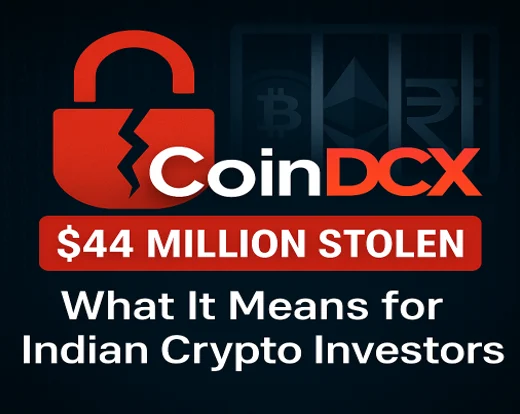
Cryptocurrency has emerged as a global phenomenon over the past few years, though there is much more that needs to be learned about this evolving technology. The most fascinating new technology is blockchain – the core technology underlying cryptocurrencies – that has the potential to become a tipping point in the worlds economy. Blockchain has potential applications that go well beyond Bitcoin and cryptocurrencies.
Governments around the world are now opening up to blockchain and crypto as well. The rise of interest in digital currencies has spread into many banks — like JP Morgan and Wells Fargo, which are building their own cryptocurrency; to large businesses, even government agencies. There has been a burst of interest in the potential for central banks to issue their own cryptos – called Central Bank Digital Currencies (CBDCs).
Central banks worldwide, including the US Federal Reserve, are considering the introduction of digital currencies from central banks worldwide in order to compete with the cryptocurrency boom. If cryptos became a dominant form of payment worldwide, it could restrict central banks, especially in smaller countries, from setting monetary policy by controlling the money supply. For cryptocurrencies to be used widely, they must first achieve wide consumer adoption.
Cryptocurrencies are still dependent upon a core infrastructure that powers cryptocurrencies such as bitcoin, most of which is located in China. Deutsche Bank notes that cryptocurrencies have long been seen as a complement, not replacement, to the worlds stock of cash, but this may be changing depending on what happens with the future of cash-and-cards. The relative complexity of cryptocurrency to traditional currencies is likely to put off most people, other than those who are technically savvy.
The use of banks & money systems, governmental restrictions, money theft or personal information, and a host of other factors have helped cryptos outperform conventional currencies for making successful cross-border payments. In view of all these cryptocurrency advantages, cryptocurrency becomes an ideal go-to source for making transactions anywhere, anytime, and to anybody across the globe. The growing popularity of cryptocurrency really takes the financial benefits into consideration, but it is only the tip of the iceberg.
It is probably going to take a lot longer for bitcoin to become a sensible financial decision for spending money on goods or services, but more institutional adoption may lead to a greater number of use cases among day-to-day users, which will, in turn, impact crypto prices. The core technologies associated with any given cryptocurrency player drive their long-term value, with no skew or relative effects. For example, Ethereum, as a fancy blockchain platform with ties to smart contracts, is responsible for a huge surge in Ether, the associated crypto. One of the biggest drivers for cryptos adoption globally has to be interest shown by institutional players. Price spikes aside, the majority of the most popular cryptos, such as Bitcoin and Ethereum, are showing immense value, which is driving investors to enter the space, more inclusively. Put simply, cryptos core technology, which is a public blockchain-specific ledger, is the potential disruptor of the market, in terms of changing how the conventional payments set-up works.
Crypto is also changing the world of culture, as blockchain tech has transformed concepts such as property. Cryptocurrencies, along with faster, more powerful financial technologies, are changing the way we think about money, challenging the financial institutions currently in charge. There are a lot of concerns floating around about cryptocurrency and its potential to upend the traditional financial system.
In a matter of years, cryptocurrency has grown from digital novelty to trillion-dollar technology that has the potential to upend the worlds financial system. While it is possible to get lost in the ebbs and flows of a volatile cryptocurrency market and hundreds of cryptos being sold on exchanges, one thing is consistent: New digital assets, embedded with blockchain technology, are creating significant change globally on a macro-level. Deutsche Bank, in their Outlook 2030, predicted the current fiat financial system may come to an end over the next 10 years, leaving the stage wide open for something new, something like crypto.
However, it would be inaccurate to say that crypto has taken the world by storm, and is projected to become a groundbreaking global currency of the future, should crypto continue to advance at a rate that is so significant right now. Despite such contradictions, cryptocurrencys popularity and usage is growing fast in recent times, so much so that it is well on the path of becoming a major disruption in the global economy over the coming years. Already, cryptocurrency has been adopted as legal tender in El Salvador, leading to emerging questions of what a global economy might look like if it shifts toward decentralized banking.
Nothing is guaranteed, but if you are buying a cryptocurrency for long-term storage, the more real-world usage there is for it, the greater the likelihood that demand and value will grow.
Investing in crypto ETFs will still have the same risks of any cryptocurrency investment: It is an asset portfolio, but will be only diversified across a few different cryptos, which are all speculative and volatile. An ETF would certainly facilitate the ability of individuals to invest in bitcoin, but the demand for wanting to invest in cryptocurrencies would still have to exist, and that may not be generated automatically by a fund. If you are not prepared to lose money that you invest into cryptocurrency, whether through purchases at the exchanges or through the crypto funds that eventually come out, then you need to think hard about whether you are prepared to accept the risks that come with having crypto in your portfolio in the first place.
Instead of learning how to navigate cryptocurrency exchanges to trade your digital assets, you can add cryptocurrency to your portfolio right from the same brokerage that you already have your retirement account or another traditional investment account. Instead of fiat money, you can use crypto to pay for goods and services that you purchase. Making sense Cryptocurrencies, and bitcoin specifically, are already being taken advantage of by people looking to use them for money laundering, buying illicit goods, or circumventing capital controls.







